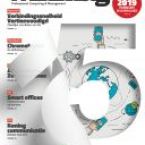Cybernews has reviewed ten popular FemTech* apps based on their privacy practices disclosed on the App Store as part of Apple’s privacy requirements
From tracking period to calorie intake, from breast checks to sexual health, we’ve trusted a bunch of apps with our most intimate data. According to the data presented by the Cybernews team, period trackers turned out to be the most data-hungry FemTech apps that we’ve looked into. One of them even sends your data to integrated partners like Pinterest, Google Ads, Apple Search Ads, Meta Audience, and others.
Women are big spenders regarding health. The FemTech market alone is estimated to reach approximately $7.5 billion in 2024 and is forecasted to nearly double by 2029. Since FemTech apps are for one of the most intimate moments of our lives, privacy is critical. In the best-case scenario, advertisers tap into your data to try and sell you some health product or service. And in the worst-case scenario, you’re targeted by law enforcement for exercising your reproductive rights.
Period trackers – the most data-hungry FemTech apps
Data collection falls within two general categories – information used to track you across apps and websites owned by other companies, and data that may be collected and linked to your identity.
According to this analysis, period trackers turned out to be the most data-hungry FemTech apps. The Flo Period and Cycles Tracker app is a female health and well-being guide used by 300 million women worldwide. As the developer indicates on the App Store, it may collect 15 different data points.
Flo notes that certain types of data, including purchase history, coarse location, user ID, device ID, and product interaction may be used to track you across apps and websites owned by other companies. Also, in its privacy policy on the website, the app notes that it shares (with user consent) some non-health personal data with AppsFlyer – a mobile marketing platform – to promote Flo’s services, which in turn sends your data to integrated partners like Pinterest, Google Ads, Apple Search Ads, Meta Audience, and others.
Another reviewed app is Clue, which tracks various experiences like cravings and sex drive, logs birth control methods, taps into the ovulation calendar, and tracks pregnancy, among other things.
It may collect 13 out of 35 data points, including, like Flo, what the App Store categorizes as “Sensitive” info. In Clue’s case, sensitive info may include your cycle information, body temperature, sexual intercourse frequency, hair quality, and others.
Clue has also listed the “essential third-party providers” needed to provide core services to its users. They include Amazon Web Services as a hosting provider; Braze, which helps with in-app messages, push notifications, and emails (you can’t opt out); Firebase for Android users; and Sparkpost, a company that processes names, email addresses, and other personal information that may be included in transaction emails.
Sexual intimacy
Sexual health apps are another popular FemTech subcategory. Apps like Emjoy and Lover: Intimacy Coaching are designed to help you rediscover your libido.
Emjoy is not too data-hungry and collects 9 data points. So does Lover. Both of them require registration upon installation. Lover, opposite Emjoy, claims it may contain “Sensitive” information and upon your consent, can sell your data to third parties.
Pregnancy trackers
Pregnancy+ (collects 11 data points) and Baby Breastfeeding Tracker (9 data points) are among the most popular maternity-related apps.
Baby Breastfeeding Tracker is the only app from our ten reviewed ones that collect precise user location data. While Pregnancy+ says it may collect sensitive data such as birth plans, contraction details, and pictures of mothers' bellies.
Fitness apps
BetterMe is one of the personalized workout and nutrition apps heavily advertised on social media. It is data-hungry and collects 13 out of 35 data points, with photos, videos and audio being among the most sensitive ones.
MyFitnessPal is another popular app within the category. It functions more or less like a calorie counter. The app, same as many other similar calorie counters, lets you scan a food so it can automatically log calories. However, that means you need to give it access to your camera.
Breast check
Know Your Lemons is an app designed to help you do a periodic self-examination of your breasts. It claims that it doesn’t collect any of the 35 Apple data points. But it does communicate with the web. Within three minutes of installing the app on the phone, it contacted 22 different web domains, some more than once.
Keep a Breast also doesn’t collect any data and does not require any form of registration and provision of specific personal data. Of course, if you subscribe to news and updates, you must enter your email within the app, but that’s about it when it comes to data collection.
While we are under no illusion our data is 100% safe, apps related to breast health really stand out when it comes to privacy.
You can read the complete analysis here.
As it stands at the time of publishing, there are 35 types of data or privacy points that Apple requires developers to disclose if their app is – or may be – collecting. These include contact information like name or phone number, financial information like payments or credit, and user location.
*FemTech apps encompass fertility, maternal health, menopause, menstrual health, pelvic and sexual health, and contraception issues, among others.







